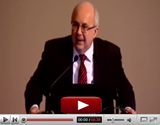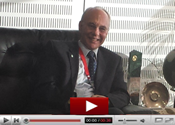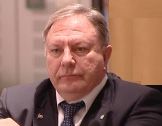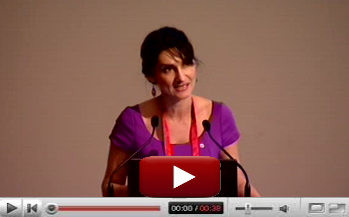BioVision Alexandria 2014 - New Life Sciences: The Next Decade
BioVision Alexandria 2014
 |
BioVisionAlexandria 2014 Library of Alexandria April 7-9, 2014 |
 |
Following the meeting of the World University Consortium’s (WUC) charter members at Bibliotheca Alexandrina (Library of Alexandria) in February, Ismail Serageldin, Director of the Library, Director of WUC and WAAS Fellow, invited the World Academy and WUC to conduct three sessions at the 7th Biennial International BioVision Alexandria conference on April 7-9, 2014. A specific goal of BioVision Alexandria was to increase participation of developing countries and create significant roles for them in the global exchange of knowledge and best practices. The conference examined the latest and emerging scientific discoveries and inquired into ways they will shape our world and worldviews. The theme of BioVision 2014 was “New Life Sciences: The Next Decade.”
The conference gave prominent attention to the current revolution in online education and the leading-edge endeavor of WUC to promote accessible and affordable world-class higher education. A plenary session of the first day of the conference was co-organized by WUC and the Library and was entitled “The Coming Revolution in Higher Education.”
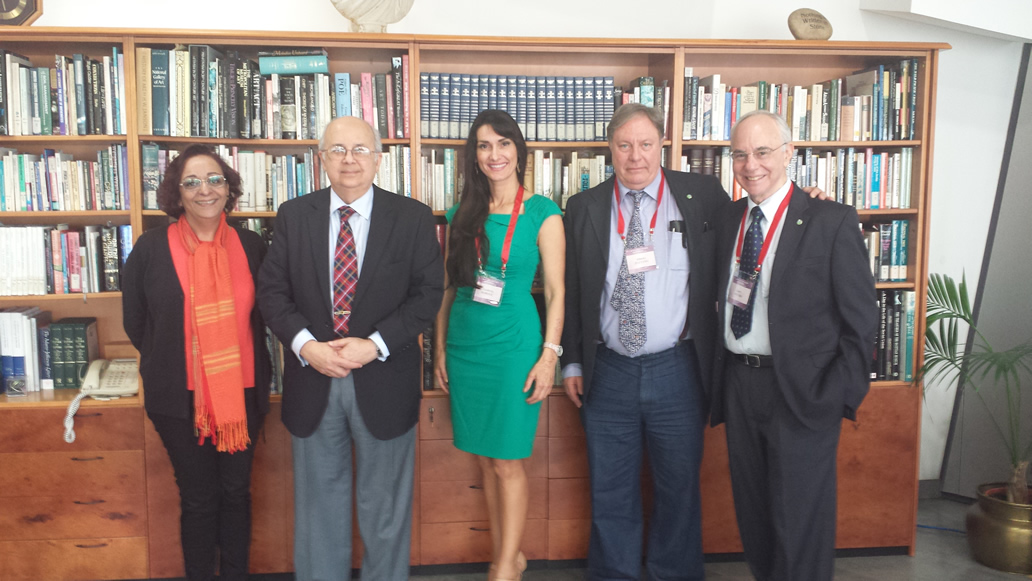 Azza El Kholy, Ismail Serageldin, Ljudmila Popovich, Alberto Zucconi & Garry Jacobs |
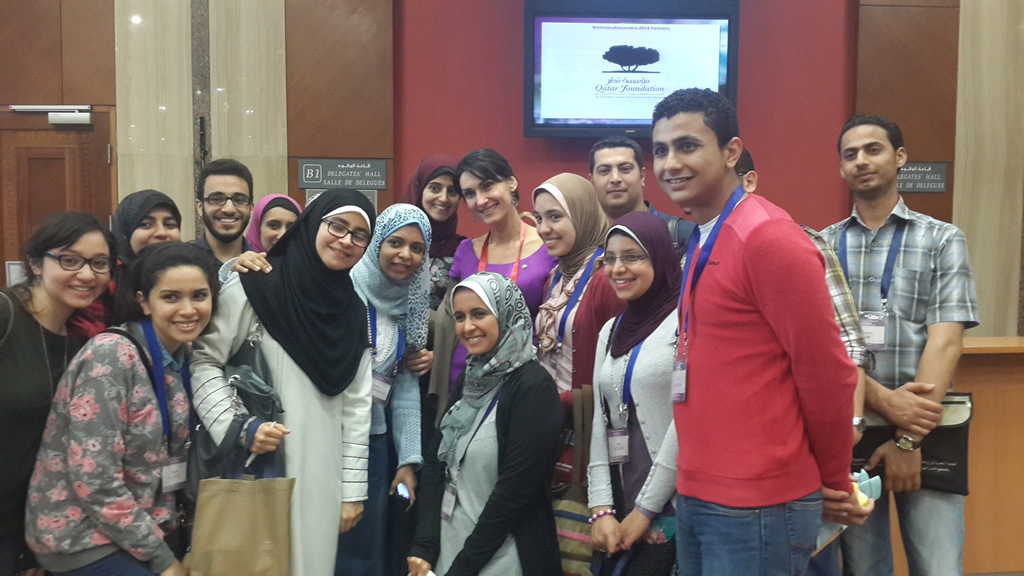 |
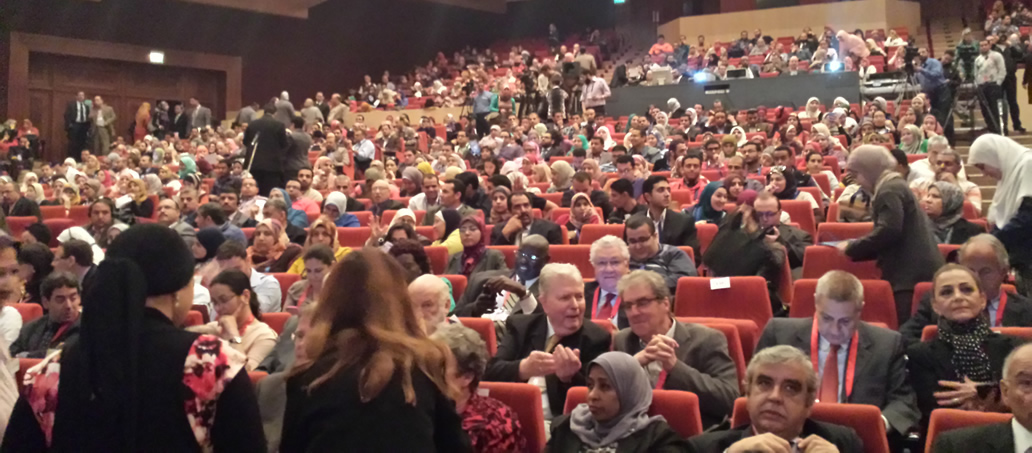
| Monday, 7 April 2014 (Day 1) |
9:00–11:00 | Registration (during all days of the Conference) | |||
| 11:00–13:00 |
Conference Opening Session |
||||
| 13:00–14:30 | Networking break (Visit BioFair and Poster Session Area) | ||||
| 14:30–15:30 |
The Role of Youth in Future Egypt |
||||
| 15:30–16:00 | Networking break (Visit BioFair and Poster Session Area) | ||||
| 16:00–17:30 | Plenary Session 1: Systems and Synthetic Biology: The Way Forward | Track 1: The German Science Centre Cairo – Excellent Opportunities for Students and Researchers from Egypt | |||
| 17:30–18:00 | Networking break | ||||
| 18:00–19:30 |
Plenary Session 2: Sustainable Agriculture: New Models |
Track 2: H2020 and Erasmus Plus: The New EU Programmes for Research, Innovation and Higher Education | |||
| Tuesday, 8 April 2014 (Day 2) |
8:30–9:00 | Registration (during all days of the Conference) | |||
| 9:00–10:30 | Plenary Session 3: The Coming Revolution in Higher Education | Panel A-1: Brain: What We Need to Know (Health) | Panel C-1: Biotechnological Applications of Metagenomics (Environment) | Track 3: Digital Health for Better Care to All | |
| 10:30–11:00 | Networking break | ||||
| 11:00–12:30 | Plenary Session 4: Emerging Pathogens: Preventing the Next Pandemic | Panel C-2: Green Innovation and Entrepreneurship – Towards a Sustainable Future of Egypt (Environment) | Track 4: Future of Education: Opportunities and Challenges | ||
| 12:30–14:00 | Networking break | ||||
| 14:00–15:30 | Panel A-2: Genomics and Infectious Diseases: Routine Diagnostics of the Next Decade (Health) | Panel B-1: Norman Borlaug and the Green Revolution: The Next Hundred Years (Food and Agriculture) | Panel C-3: TriNex: Making the Water–Energy–Food Nexus the Next Research Frontier in Egypt (Environment) | Track 5: Consciousness According to Science, Philosophy and Spirituality | |
| 15:30–16:00 | Networking break | ||||
| 16:00–17:30 | Panel A-3: Phage Therapy: Old is New! (Health) | Panel B-2: Norman Borlaug and the Green Revolution: the Next Hundred Years (Food and Agriculture) | Panel C-4: Future of Sustainability I (Environment) | Track 6: Communication, Innovation and Education: A Multiple Perspective (Roundtable) | |
| 17:30–18:00 | Networking break | ||||
| 18:00–19:30 | Panel A-4: Health Care and the Medical Revolution (Health) | Panel C-5: Future of Sustainability II (Environment) | Track 7: Help Desk | ||
| Wednesday, 9 April 2014 (Day 3) |
8:30–9:00 | Registration (during all days of the Conference) | |||
| 9:00–10:30 | Plenary Session 5: New Trends in Life Sciences | ||||
| 10:30–11:00 | Networking break | ||||
| 11:00–12:30 | CEO Panel | ||||
| 12:30–14:00 | Networking break | ||||
| 14:00–15:00 | Plenary Session 6: Reporting Session | ||||
| 15:00–16:00 | Plenary Session 7: Closing Session | ||||
WUC, a new paradigm in education and in university consortiums by Alberto Zucconi
